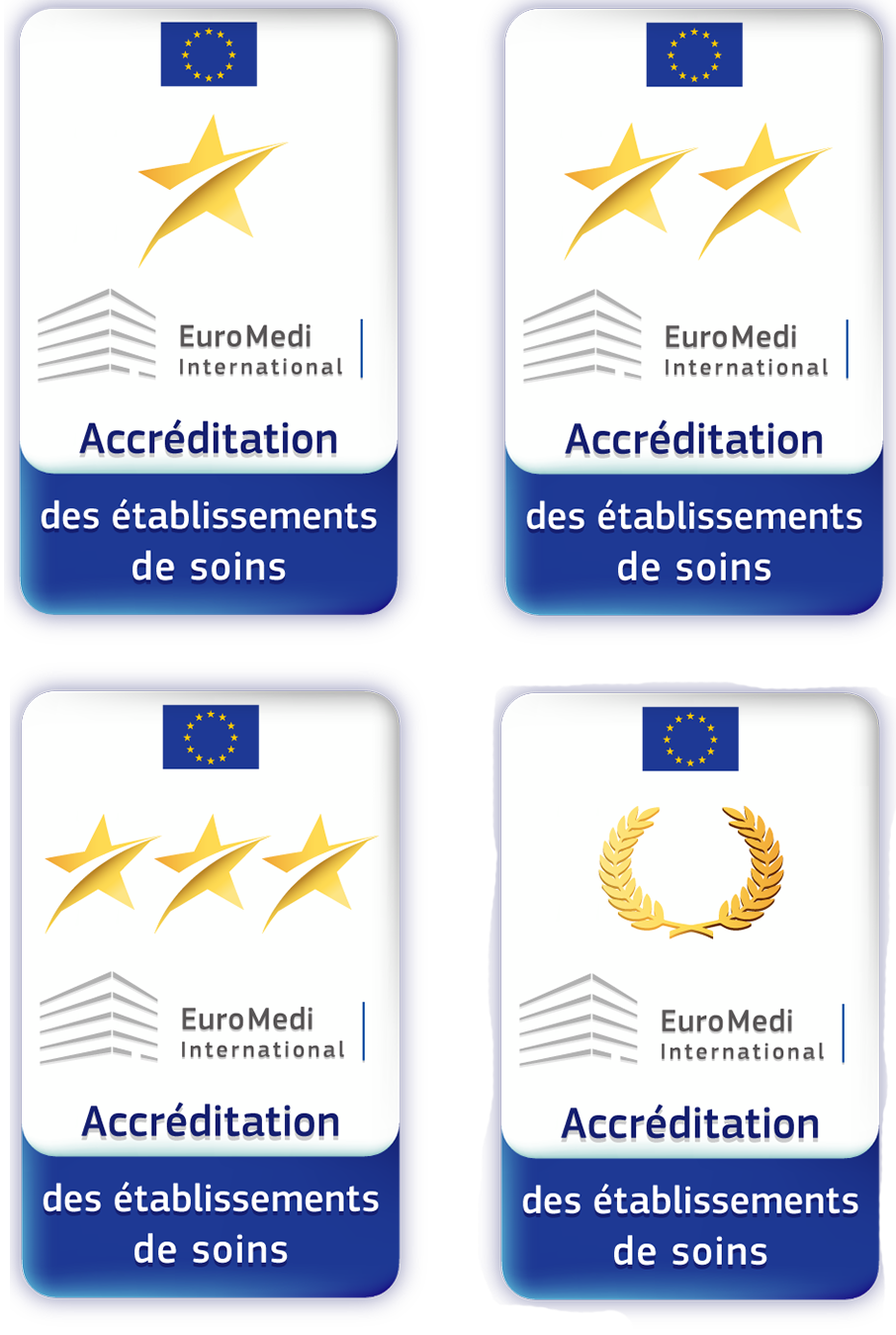What is accreditation?
What is accreditation?
The accreditation of a health care organisation or team is an external evaluation based on internationally recognised standards that aims to measure the quality and safety of the care provided.
To be accredited is to meet a set of qualitative criteria that are all about the quality of the work.This is the case for the entire operation of the institution and its practices.
It must be carried out by an external, neutral, competent and recognised body.
Entering into this process gives health care institutions the means to evaluate and improve the quality of their services on a regular and continuous basis. It is also about defining a real strategy in terms of common objectives to be achieved.
Obtaining this label is a guarantee of quality that proves to patients and partners, both internal and external, that the institution has set itself the priority goal of ensuring a high level of care by respecting internationally validated processes.

Through this internationally recognised European accreditation process you will be able to :
- Improving care management
- Minimising risks
- Reduce costs and increase efficiency
- Increase your income
- Attracting new patients
- Building patient loyalty
- Attracting qualified staff
- Showing your competence to the supervisory authorities
- Increase your visibility and awareness
- Become a reference in your sector of activity

The challenges of accreditation and certification
Accreditation is not a theoretical exercise based solely on the analysis of documents and interviews with the health care staff or the management of the institution visited. This is useless, misleading and a source of a lot of energy on the part of the staff in preparing for the visit. Accreditation is based on the reality on the ground and the experience of all stakeholders in the health care organisation, including the patient.

Accreditation will therefore focus on the following 5 criterias
1. Good governance translated into facts that can be observed on a daily basis.
2. Setting clear objectives and evaluating the results achieved.
3. Real teamwork as a guarantee for good results.
4. The evolution of good practice through new technologies such as telemedicine.
5. The real involvement of patients throughout the process.
The aim of the accreditation process implemented by EuroMedi International is clearly to improve the well-being of patients and teams through compliance with relevant medical and managerial practices.
This is why accreditation visits by auditors from the field (doctors, nurses, pharmacists, logisticians, managers, etc.) will be based primarily on observation of daily reality and not on analysis of theoretical procedures.
For this reason, "tracer" concepts will be implemented, for example by following the residents during a typical day in the MR-MRS (EHPAD). But this notion of tracer is also true for drugs or transfusion or for the logistic chain where the auditors will try to follow the process from A to Z.
EuroMedi also wants to involve patients in the evaluation of their care. To do this, not only will some patients be directly interviewed by the auditors, but EuroMedi will be able to draw conclusions from the comments and evaluation questionnaires filled in by the patients, thanks to "big data" and artificial intelligence analysis tools.
Finally, it is clear that the notion of care pathways or clinical itineraries, even if they are far from being generalised with a real standardisation and a real teamwork between all the health professionals concerned and the patient himself, will be privileged by EuroMedi International.
